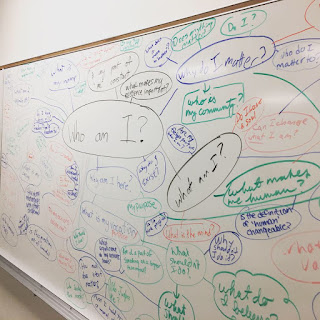Made to Be Priests?
Made to Be Priests? Two New Testament texts characterize the ministry and accomplishment of Jesus Christ as enabling us to become priests who offer ourselves in service to God. In fact, more can be said. Given the strategic placement of these two texts in their respective larger literary contexts, both authors seem to suggest that “priesthood” is the core identity and responsibility of those who have been liberated by Jesus and called to join Him in His mission of loving the world. “ As you come to [Jesus], a living stone rejected by men but in the sight of God chosen and precious, you yourselves like living stones are being built up as a spiritual house, to be a holy priesthood, to offer spiritual sacrifices acceptable to God through Jesus Christ.” (1 Peter 2.4-5; see also 1 Peter 2.9) “ To him [Jesus] who loves us and has freed us from our sins by his blood and made us a kingdom, priests to his God and Father, to him be glory and dominion forever and ever. Amen. ” (Revel



